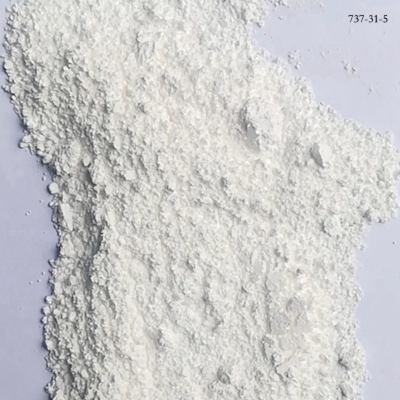-
Categories
-
Pharmaceutical Intermediates
-
Active Pharmaceutical Ingredients
-
Food Additives
- Industrial Coatings
- Agrochemicals
- Dyes and Pigments
- Surfactant
- Flavors and Fragrances
- Chemical Reagents
- Catalyst and Auxiliary
- Natural Products
- Inorganic Chemistry
-
Organic Chemistry
-
Biochemical Engineering
- Analytical Chemistry
-
Cosmetic Ingredient
- Water Treatment Chemical
-
Pharmaceutical Intermediates
Promotion
ECHEMI Mall
Wholesale
Weekly Price
Exhibition
News
-
Trade Service
We have talked a lot about the trend of 100% PMI (Material Reliability Identification) testing because manufacturers want to be guaranteed in terms of quality to protect their reputation
.
As the supply of metal alloys becomes more complex, the actual composition of purchased materials becomes increasingly uncertain
.
This puts increased pressure on the company to demonstrate quality control and material verification processes
Obtaining confusing materials, forged certificates, and wrong alloys from suppliers is becoming more common
.
Therefore, verifying that the alloy used is correct has become critical.
We have discussed how to perform correct metal quality control in the manufacturing process .
Today, we share three stories to show how our customers can avoid or solve serious problems by using Hitachi Analytical Instruments handheld analyzers for quality control and guaranteed PMI testing.
Quality issues
.
Prevent catastrophic failures on site
The British company GT Factors manufactures ratchet restraint straps for securing cargo
.
In order to comply with the specification and resist early corrosion, the restraint band must be made of marine grade 316 stainless steel
The use of such mislabeled steel in production can have catastrophic consequences, which can lead to serious accidents and damage the reputation of GT Factors
.
This can be avoided by Vulcan's simple one-second test; GT Factors now uses Vulcan spectrometers to test all stainless steel feeds
Solve production quality problems
The Finnish company Suunto produces sports watches, dive computers and directional compasses
.
Suunto encountered some problems in the laser printing process on the back of the sports watch case-uneven printing and poor quality
Hitachi recommends the use of a handheld X-MET8000 XRF spectrometer
.
After a quick analysis using X-MET, it is shown that the pigment content in the injection molded watch case is different, and the area with low pigment content corresponds to the area with poor printing quality
Compliance with strict industry standards
Another company headquartered in the United Kingdom, I Holland, specializes in providing the pharmaceutical industry with steel dies and punches for the manufacture of tablets
.
I Holland must analyze each tool to ensure that the material composition is correct before the parts are sent to its customers
After the company contacted Hitachi Analytical Instruments, the latter sent it a demonstration handheld Vulcan spectrometer for testing
.
The fast analysis time allows I Holland's team to sort parts quickly, and now I Holland uses Vulcan on the production site every day
These examples underscore why the move to 100% PMI is essential to maintaining quality standards
.
Hitachi Analytical Instruments’ handheld LIBS and XRF spectrometer series products can ensure that the alloy grades are correct and the materials are suitable for use, ensure that the alloy has the expected chemical composition, and verify whether there are impurities that may cause early failure or non-compliance with regulations
.
For more information about Hitachi's Vulcan and X-MET handheld spectrometer series for PMI testing and feed verification, please contact us for a quote
.
Sales Hotline: 400 621 5191
Service Hotline: 400 622 5191







